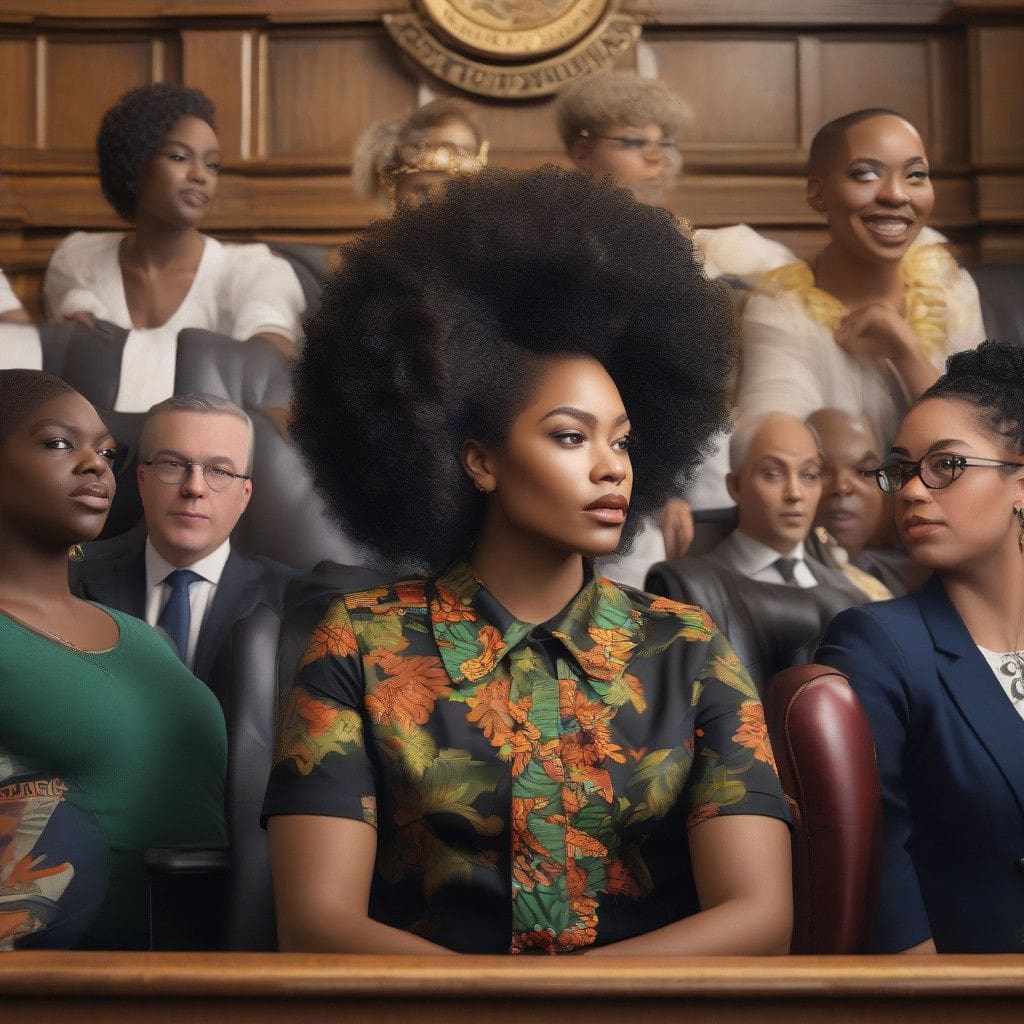As the world gears up to celebrate the eighth annual World Afro Day on September 15, a significant movement is underway in the UK. Over 100 supporters, including prominent celebrities and advocates, have signed an open letter urging the UK Parliament to adopt a policy that directly addresses hair discrimination. This campaign seeks to reform the existing 2010 Equality Act to protect individuals against discrimination related to Black hairstyles.
In recent years, similar legislation has gained momentum in the United States. Notably, California enacted the Crown Act in 2019, which prohibits hair-based discrimination in workplaces and educational institutions. Currently, 27 states have followed suit, mandating that cosmetology schools incorporate a curriculum that highlights the beauty and care of textured hair types, including coiled, curly, and wavy hair.
The letter initiated by the nonprofit organization World Afro Day calls for an essential update to the UK’s Equality Act. Presently, this act aims to safeguard individuals from discrimination on several grounds including race, sex, and disability. However, natural hairstyles, particularly those common in the Black community, are not explicitly protected. This gap leaves many individuals vulnerable to bias and unjust treatment.
A diverse group of supporters has rallied behind this initiative. Renowned artists such as Beverly Knight, along with political figures like Labour MP Paulette Hamilton, have publicly endorsed the cause. Mel B, a member of the Spice Girls, has also shared her personal experiences with hair discrimination, expressing pride in supporting the movement through her platform. In her Instagram post, she articulated, “I’m proud to support World Afro Day in its call for the Equality Act to protect against Afro hair discrimination in the UK.”
The roots of hair discrimination against the Black community are deeply entrenched in history, dating back to the transatlantic slave trade. Tragically, this discriminatory behavior persists today, as many Black Britons, including children, face prejudice in workplaces and educational settings. World Afro Day reports that an alarming 98% of Black Britons feel pressured to modify their presentation—including speech, appearance, and hairstyles—to fit into professional environments. Shockingly, children are often penalized or sent home for expressing their identity through their natural hairstyles.
The implications of such discrimination extend beyond personal identity; they impact mental health and self-esteem, particularly among young individuals. The stigma surrounding natural hairstyles can lead to feelings of inadequacy and the belief that conformity is necessary for acceptance. This creates a cycle of pressure that negatively affects personal expression and cultural identity.
A broader examination of the beauty and hair care industry reveals a longstanding neglect of Black hairstyles. Historically, practices such as braiding, locs, and twists have been undervalued or dismissed. Recent legislative changes in the United States signal a shift towards inclusivity in cosmetology. Under the new laws, schools are now required to educate students about all hair types, highlighting the historical and cultural significance of textured hair. Such steps aim to foster a more inclusive environment within the beauty industry and encourage future professionals to appreciate the artistry involved in styling diverse hair types.
The UK’s potential adoption of an anti-hair discrimination policy would place it among progressive nations that prioritize equality and diversity. It is not merely about altering legislation; it’s about transforming societal attitudes towards natural hair. This campaign stands as a powerful reminder that beauty standards must evolve to embrace all forms of self-expression.
The conversation around hair discrimination is gaining traction across various platforms. Prominent figures in media, politics, and entertainment are leveraging their influence to push for change. As this movement continues to gather support, the hope is that it will ignite conversations beyond the UK, inspiring other nations to reflect on their own policies regarding hair discrimination.
In conclusion, as World Afro Day approaches, it is imperative to recognize the historical context and ongoing impact of hair discrimination. Advocacy for policy reform, such as the inclusion of hair types in the Equality Act, is not just about legal protection; it’s about affirming the value of diverse identities. The journey towards inclusivity starts with a commitment to change legislatively and, importantly, culturally.












